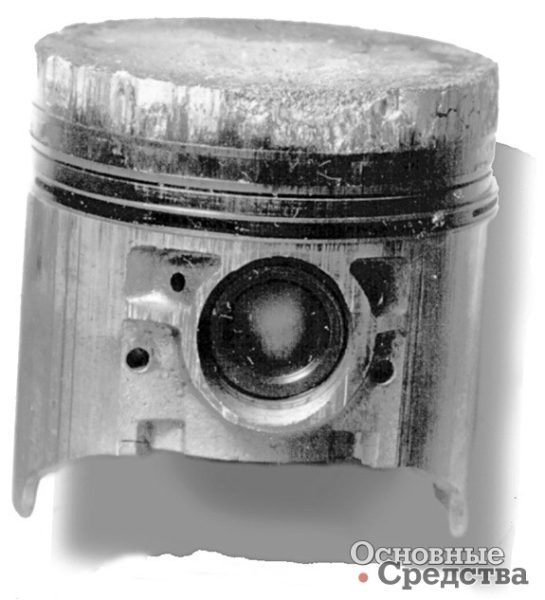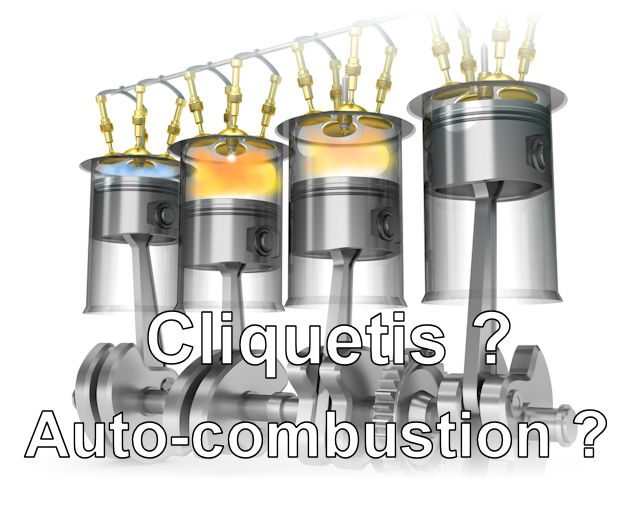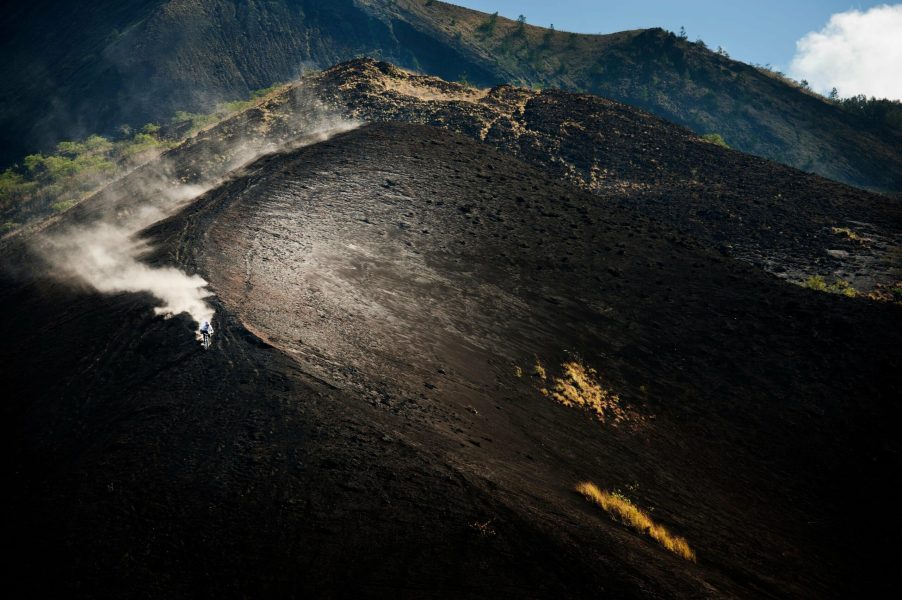
What is the difference between detonation and autoignition?
Content

Many of us sometimes confuse knocking with the self-ignition / spontaneous-ignition effect, which often occurs in people with a spark ignition engine, i.e. a gasoline engine.
What is self-ignition?
First of all, you should know that spontaneous combustion consists of fuel that ignites spontaneously. In fact, even if we are talking about fuel that ignites by itself, this is not true ...
In fact, we are talking about self-ignition, when the pressure becomes so high that the heat generated causes the air-fuel mixture to ignite. Because you need to know that "compressing" a gas generates heat, and that heat can ignite the mixture if it gets big enough.
A spontaneous ignition engine is an engine that ignites its fuel without the use of a spark plug (which causes a spark), but only thanks to the pressure in the cylinder, which heats up the gas (intake air, i.e. 80% nitrogen and 20% oxygen). Hence, this is the principle of diesel engines that do not use spark plugs), but also the concern about engine acceleration.
Differences between self-ignition and detonation
So what's the difference between clicking and spontaneous combustion (or spontaneous combustion, it's the same thing)? Well, at the end of the day, they remain both similar and different, and the terms used to define these things don't strike me as a good match.
Indeed, in both cases we are talking about spontaneous combustion ... Which is ultimately confusing. The only difference is in timing and in how spontaneous combustion occurs, that's all. But in both cases, this really applies to spontaneous combustion! So you see what I see as a concern in terms of dismissal?
Self-ignition / spontaneous combustion
We usually talk about spontaneous combustion, where the fuel / air mixture ignites on its own during compression: that is, when the piston rises, when all the valves are closed (if not open). Compression is possible and you can imagine). Basically, we will have combustion before we want to cause it, that is, when the spark plug triggers a spark.
But basically, the term spontaneous combustion simply refers to spontaneous combustion by increasing pressure, there is no particular context here as I indicated earlier.
Self-ignition is simple: the piston moves up and compresses the air. Compressing air heats up and ignites everything
Click sound
Thus, the clicking sound is self-ignition of the mixture, but due to a different effect, although it is always associated with pressure. Thus, the problem here is not during compression, but during ignition of the spark plug. So you tell yourself that there shouldn't be a problem because there was no early fire (before the fire). Well yes, the shock wave (or rather pressure wave) caused by combustion in the center of the cylinder (where there is a spark plug and, in particular, the start of an explosion from a spark) will “waltz strongly” with some of the fuel (which has not yet had time to burn out) towards the walls of the cylinder. This fuel is then pressed and pressed hard against the latter, and so it eventually ignites as this pressure naturally causes heat (I repeat, pressure = heat in physics).
Hence, we will have an “explosion” (we should never actually talk about an explosion if we want to be precise in terms, but hey ...) in the center of the spark plug (the one that was supposed to power the spark plug). heat engine), but also, unfortunately, small independent explosions located at the walls of the cylinder and piston ...
These small parasitic explosions then attack the metal and the engine slowly decomposes from the inside. Therefore, over time, funnels appear in the cylinders and pistons, and, therefore, the compression and, therefore, power are logically lost ...
Clicks are also related to self-ignition, except that the trigger is a different phenomenon. Instead of the piston "crushing" the air, it is a pressure wave that forces some of the air/fuel mixture against the walls of the piston and cylinder. I have illustrated a small explosion here, but there are actually a lot of them happening in the four corners of the chamber (also depends on the location of the injector).
Summary of Differences?
If we were to simplify as much as possible, we could say that spontaneous combustion consists of early ignition (in the compression phase), while detonation consists of late ignition, causing small "explosions" on the right and left in the cylinder. after forced ignition (spark plug). The latter is very harmful, as it destroys the internal metal parts of the engine.
Why is there no rumble on a diesel engine?
This phenomenon cannot happen because the ignition is not controlled by the spark plug, despite what many say about liquid fuel knocking. It is heat, caused by the pressure of the mixture, which ignites everything, and therefore the latter is uniform throughout the cylinder. If it is homogeneous, then everything will ignite suddenly, and not in small areas, as in the case of a spark plug, which causes combustion at a certain point that is hotter than others (with diesel fuel, the entire chamber heats up suddenly, so uniform heating prevents combustion delays) ...
Therefore, this kind of noise on a diesel engine should look for its cause elsewhere: valves, injectors (pre-injection or injection at the wrong time), chamber sealing, etc.
All comments and reactions
Dernier comment posted:
Traore Namori Abdul Aziz (Date: 2020, 05:17:17)
Gas engine
Il I. 3 reaction (s) to this comment:
(Your post will be visible under the comment after verification)
Write a comment
An electric car for supercars, can you believe it?
